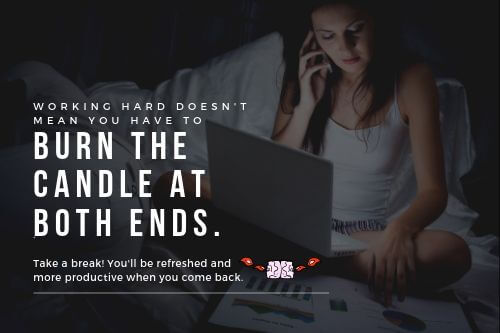
YouTube / iTunes / Spotify / Radio Public / Pocket Casts / Google Podcasts / Breaker / Overcast
Listen to ArtisanEnglish.jp posts & lesson intros here.
Phrase: Burn the candle at both ends
While sometimes it may be unavoidable, burning the candle at both ends for weeks or months at a stretch is never a good idea.
Just as we need good food and clean water, we also need breaks and sleep.
If you burn the candle at both ends, you start work early and finish late with very little rest in between.
Often you have either no breaks at all or only short ones for meals.
As you can imagine, if you kept up a schedule like that for months, you would become sick.
The general idea is that we should be getting eight hours of sleep a night.
I’m not so sure about that, though.
I’d rather believe people need as much rest as their bodies tell them they need.
Oversleeping occasionally is your body’s way of telling you it’s not getting enough sleep.
If you get a healthy amount of sleep and go to bed at an appropriate time, you will wake up at about the same time every day.
My alarm is set for 5:30 am, but I often wake up around 5:27 am, for example.
I also always go to bed at the same time every night, which means I rarely burn the candle at both ends.
In addition to that, burning the candle at both ends is not suitable for increased productivity.
People can only concentrate for short periods before they quickly become distracted.
How often have you been working on your computer, opened your browser to check something, and thirty minutes later discovered you’ve gone down a rabbit hole?
That’s your brain telling you it needs a break.
If you take a break away from your computer for 10 or 15 minutes, you’ll be much better able to concentrate on the task at hand when you come back again.
Burning the candle at both ends will adversely affect your sleep and productivity.
Often, the key to getting things done is working smarter, not harder.
Flesch-Kincaid Readability Test
This post is understandable by someone with at least a 7th-grade education (age 12).
On the Flesch-Kincaid reading-ease test, this post scores 74.
The easier a passage is to read, the higher the score on a scale of 0 – 100.

